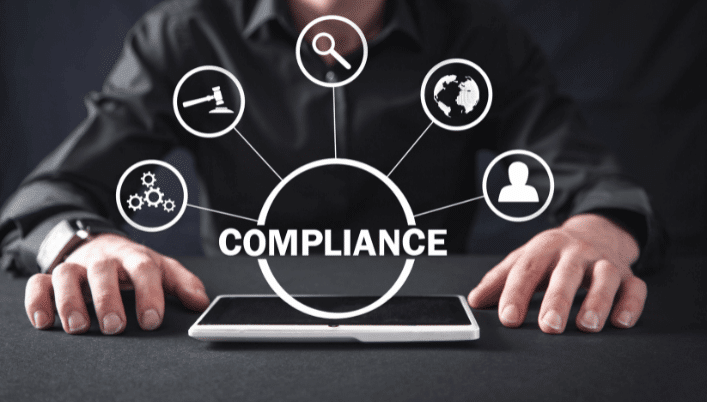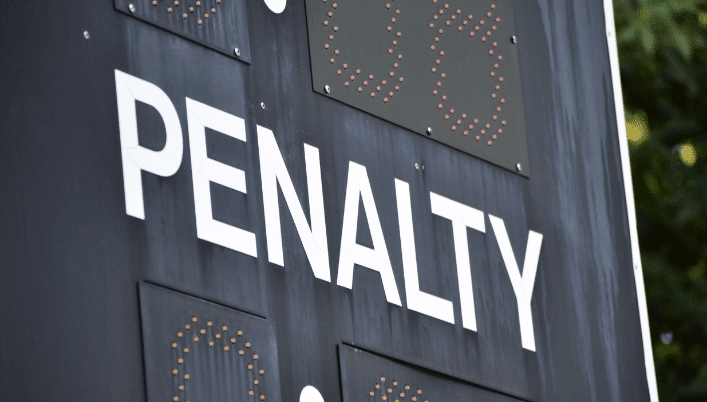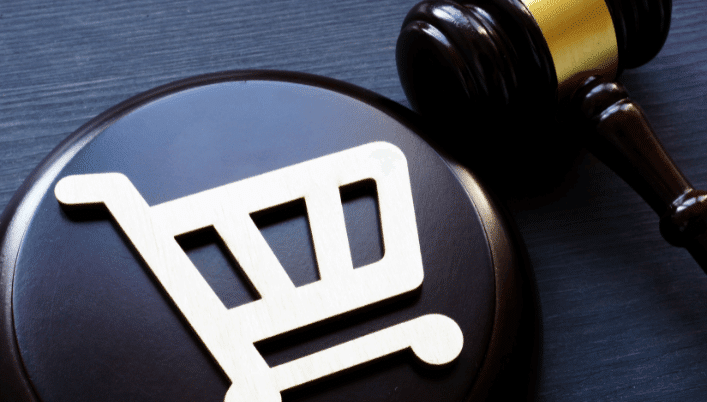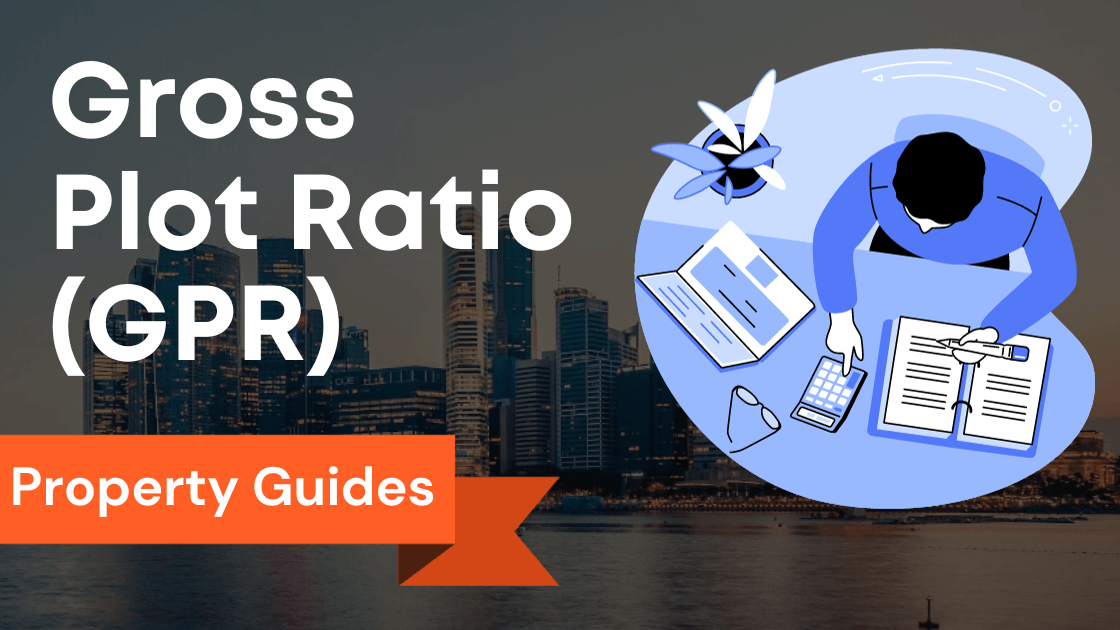
The Personal Data Protection Act (PDPA) is a data protection law that sets out rules governing the collection, use, and disclosure of personal data in Singapore.
It was enacted to safeguard the privacy and protect the personal data of individuals.
Overview of the Personal Data Protection Act (PDPA) in Singapore
The PDPA applies to individuals, organizations, and businesses that collect, use, or disclose personal data in Singapore.
It aims to provide individuals with control over their data and ensure that organizations handle personal data responsibly.
Under the PDPA, personal data refers to any data that can identify an individual, such as their name, address, contact details, and even their photographs.
Organizations are required to establish data protection policies and practices to safeguard personal data.
They must also appoint a data protection officer to oversee data protection matters.
Importance of compliance with PDPA for businesses
Compliance with the PDPA is crucial for businesses in Singapore.
It ensures that personal data is being handled transparently and responsibly.
Businesses are required to obtain consent from individuals before collecting, using, or disclosing their data.
They must also provide individuals with information on the purposes for which their data is collected.
Failure to comply with the PDPA can result in penalties and reputational damage.
The Personal Data Protection Commission is the regulatory body responsible for enforcing the PDPA.
They have the power to investigate and impose penalties for non-compliance.
In November 2020, the PDPA was amended to include additional requirements and strengthen the framework for data protection.
These amendments expand the scope of the PDPA and enhance provisions relating to data breaches and cross-border data transfers.
In conclusion, businesses in Singapore must ensure compliance with the PDPA to protect the personal data of individuals and avoid penalties.
By implementing robust data protection policies and practices, organizations can build trust with their customers and demonstrate their commitment to privacy.
Key Takeaways
- Introduction to PDPA: The PDPA is a data protection law in Singapore that governs the collection, use, and disclosure of personal data to safeguard privacy.
- Scope and Applicability: PDPA applies to individuals, organizations, and businesses that collect, use, or disclose personal data in Singapore, emphasizing control over personal data.
- Importance of PDPA for Businesses: Compliance with PDPA is crucial for businesses to handle personal data transparently and responsibly to avoid penalties and protect their reputation.
- Regulatory Body: The Personal Data Protection Commission enforces PDPA, with the authority to investigate and impose penalties for non-compliance.
- Amendments in November 2020: The PDPA was amended in November 2020 to enhance data protection, expanding its scope and strengthening provisions related to data breaches and cross-border data transfers.
- Key Concepts and Definitions: PDPA defines personal data, consent, and protection obligations, emphasizing the need for consent before collecting, using, or disclosing personal data.
- Data Protection Obligations: Businesses must implement reasonable security measures, ensure data accuracy, and limit access to personal data.
- Data Protection Officer (DPO): Appointing a DPO is necessary to oversee data protection matters within the organization.
- Penalties for Non-Compliance: Non-compliance with PDPA can result in financial penalties, damage to reputation, and legal consequences.
- Seeking Guidance: To navigate PDPA complexities, businesses should seek guidance from resources provided by the PDPC, engage a DPO, and ensure their employees are well-trained in PDPA compliance.
Understanding the Personal Data Protection Obligations
Key concepts and definitions under the PDPA
The Personal Data Protection Act (PDPA) is Singapore’s principal data protection legislation to establish a protection culture and regime for personal data.
It outlines essential concepts and definitions businesses must comply with when handling personal data.
Under the PDPA, personal data refers to any data that can identify an individual.
This includes names, identification numbers, contact information, and even photographs.
Consent is a crucial concept, and organizations must obtain consent from individuals before collecting, using, or disclosing their data.
The PDPA also introduces the concept of the Protection Obligation, which explains how organizations should handle personal data.
This includes implementing reasonable security measures to protect personal data, ensuring accuracy, and limiting access to personal data on a need-to-know basis.
Data protection obligations for businesses
Businesses in Singapore have specific data protection obligations under the PDPA.
They are required to appoint a Data Protection Officer (DPO) to oversee data protection matters within the organization.
The DPO ensures that the business complies with the PDPA and handles personal data responsibly.
Businesses must also establish data protection rules and policies to guide employees in handling personal data.
They should conduct regular training and awareness programs to educate employees on data protection best practices and maintain a high level of data security.
Changes and updates to the PDPA framework in November 2020
In November 2020, amendments were made to the PDPA framework to strengthen data protection provisions.
These changes include enhanced consent requirements, increased penalties for non-compliance, and the extension of the PDPA to the public sector.
Organizations must stay updated with these changes and ensure they fully comply with the new requirements.
Failure to comply with the PDPA can result in financial penalties and reputational damage.
Overall, businesses in Singapore must prioritize data protection and ensure they have robust measures to safeguard personal data.
By complying with the PDPA, companies can build trust with consumers and demonstrate their commitment to protecting personal information.
Scope and Application of the PDPA

Which organizations and individuals do the PDPA apply to?
The Personal Data Protection Act (PDPA) in Singapore is a comprehensive data protection law that sets out the rules and regulations for collecting, using, and disclosing personal data.
The PDPA applies to organizations and individuals who collect, use, or disclose personal data during their activities.
In the private sector, the PDPA applies to all organizations that collect, use, or disclose personal data in Singapore, regardless of size or industry.
This includes businesses, companies, non-profit organizations, and even individuals who collect personal data for commercial purposes.
The PDPA applies to all Government and public agencies in the public sector, including statutory boards and organs of the State.
The PDPA also governs the collection, use, and disclosure of personal data by media development authorities in Singapore.
Data protection requirements for the private sector
Under the PDPA, organizations in the private sector have specific data protection requirements to comply with.
These include:
- Implementing data protection policies and practices: Organizations must develop and implement personal data protection policies and procedures that comply with the PDPA.
- Obtaining consent: Organizations must obtain the individual’s consent before collecting, using, or disclosing their data.
- Ensuring the accuracy and security of personal data: Organizations are responsible for ensuring that their personal data is accurate and protected from unauthorized access or disclosure.
- Limiting the collection, use, and disclosure of personal data: Organizations should only collect, use, and disclose personal data for purposes that have been consented to by the individual.
Data protection requirements for the public sector
The PDPA imposes similar data protection obligations in the public sector on Government and public agencies.
These include the need for organizations to collect, use, and disclose personal data for specific purposes and safeguard their personal data.
The PDPA also governs using personal data by media development authorities in Singapore, ensuring that personal data is collected, used, and disclosed responsibly and in compliance with the law.
Non-compliance with the PDPA can result in penalties, including fines and imprisonment, so organizations and individuals must understand and comply with their obligations under the PDPA.
Compliance with the PDPA

Steps to ensure compliance with the PDPA
To comply with Singapore’s Personal Data Protection Act (PDPA), businesses need to follow specific steps to protect personal data.
Here are some practical rules to enable compliance:
- Know the protection rules: Familiarize yourself with the PDPA provisions and understand how they apply to your business. This includes knowing when personal data can be collected, used, or disclosed.
- Implement protection provisions: Create data protection policies and practices that align with the PDPA requirements. This includes obtaining consent from individuals before collecting their data and ensuring its accuracy and security.
- Review and update policies: Regularly review and update your data protection policies to stay in line with any changes in the PDPA framework. This will help you remain compliant and adapt to evolving regulations.
Implementing data protection policies and practices
To ensure compliance with the PDPA, businesses should establish a data protection culture.
This includes:
- Creating data protection policies: Develop comprehensive policies that outline how personal data should be handled, stored, and secured within your organization.
- Implement protection practices that adhere to the PDPA requirements, such as regularly conducting data protection impact assessments and implementing measures to prevent unauthorized access to personal data.
Failure to comply with the PDPA can result in penalties, so it is crucial to establish and continuously follow data protection policies and practices.
Training employees on PDPA compliance
To ensure everyone in your organization understands and follows PDPA compliance, provide training to employees.
This can include:
- Educating employees about the PDPA: Train employees on the provisions and requirements of the PDPA, ensuring they understand their responsibilities in handling personal data.
- Regularly updating training: Keep employees informed about any changes or updates to the PDPA framework and provide additional training as necessary.
By training employees on PDPA compliance, you can ensure that everyone in your organization knows their obligations and can proceed accordingly.
In conclusion, compliance with the PDPA is essential for businesses operating in Singapore.
By following the necessary steps, implementing data protection policies and practices, and training employees, companies can fulfill their obligations and protect personal data according to the PDPA requirements.
Penalties for Non-Compliance

Potential penalties and consequences for non-compliance
Singapore’s Personal Data Protection Act (PDPA) imposes strict obligations on businesses to protect personal data.
Failure to comply with these regulations can result in penalties and consequences.
Here are some key points to understand:
- Financial Penalties: The PDPA provides for monetary penalties for non-compliance. The maximum financial penalty is $1 million, or 10% of the organization’s annual turnover in Singapore, whichever is higher.
- Protection Rules: Businesses must comply with the PDPA’s data protection rules, which include obtaining consent for collecting and using personal data, ensuring the accuracy of data, and protecting data from unauthorized access or disclosure.
- Potential Penalties: Non-compliance can lead to various penalties, depending on the severity of the breach. These may include warnings, directions to comply, financial fines, and even criminal sanctions in some instances.
- Consequences: Besides the financial impact, non-compliance can have other business implications. It can damage a company’s reputation, result in loss of customer trust, and lead to legal action by affected individuals.
Recent cases and fines imposed under the PDPA
In recent years, there have been several cases where businesses have faced fines for breaching the PDPA.
These cases highlight the seriousness of non-compliance and the importance of adhering to the data protection obligations.
Some notable fines imposed include:
- Breach Incidents: Businesses that experience data breaches or unauthorized disclosures of personal data can face fines under the PDPA. The severity of the violation and the measures taken to address it are considered when determining the penalty.
- Breach Incident Management: Managing breach incidents is crucial to minimize the impact and potential penalties. Businesses must have processes to detect, assess, and report breaches promptly.
- PDPA Compliance: Businesses need to understand and comply with the PDPA requirements. This includes implementing secure data management practices, providing proper training to staff, and regularly reviewing and updating data protection policies.
By understanding the potential penalties and recent cases, businesses can take the necessary steps to ensure compliance with the PDPA and protect the personal data of individuals.
Seeking Clarifications and Guidance

To navigate the complex landscape of the Personal Data Protection Act (PDPA) in Singapore, businesses must clearly understand the compliance requirements and obligations.
Seeking clarifications and guidance can help ensure that companies are up to date with the latest regulations and can fulfill their data protection obligations.
Resources available for businesses to seek guidance on PDPA compliance
The Personal Data Protection Commission (PDPC) provides various resources and advisory guidelines to assist businesses in understanding and complying with the PDPA.
These resources include:
- Advisory Guidelines on Key Concepts: This document explains key concepts and provisions of the PDPA in an easy-to-understand manner, making it a valuable resource for businesses seeking guidance.
- Advisory Guidelines on the PDPA: These guidelines provide detailed explanations and examples relating to specific aspects of the PDPA, such as the collection, use, and disclosure of personal data.
- Advisory Guidelines on the PDPA for Selected Topics: This resource covers specific topics, such as marketing consent and data intermediaries, providing businesses with particular guidance.
In addition to the resources provided by the PDPC, businesses can also seek guidance from regulatory institutions and organizations that offer similar information and support.
Keeping current with these resources can help companies to navigate the PDPA compliance framework effectively.
Engaging a data protection officer
As part of their PDPA compliance efforts, businesses should consider engaging a data protection officer (DPO).
The DPO is crucial in ensuring that personal data is handled appropriately and complies with the PDPA.
Their responsibilities include:
- Developing and implementing data protection policies.
- Conducting audits.
- Training staff members on data protection practices.
Engaging a DPO can enable businesses to strengthen their data protection regime and minimize the risk of data misuse.
Data breach notification requirements
Under the PDPA, businesses must notify the PDPC of notifiable data breaches.
A notifiable data breach is any incident where personal data under a business’s care has been accessed, disclosed, or stolen unauthorizedly.
The breach notification regime aims to ensure that individuals are informed of breaches that may impact their data and enables them to take appropriate actions to protect themselves.
Businesses must familiarize themselves with the data breach notification requirements and have processes to respond promptly to breach incidents.
By proactively seeking clarifications and guidance, businesses can ensure that they are compliant with the PDPA and protect the personal data of their customers and stakeholders.
PDPA and Business Operations

How PDPA compliance affects various aspects of business operations
To comply with Singapore’s Personal Data Protection Act (PDPA), businesses need to be aware of how it impacts their operations.
Here are some key points to consider:
- Business contact information: Under the PDPA, business contact information is generally not considered personal data. However, if it can be linked to an individual and used for private purposes, it may fall under the PDPA’s protection rules.
- Business purposes: Businesses must ensure that any personal data collected, used, or disclosed is done only for legitimate business purposes and with the individual’s consent.
- Data protection obligations: Businesses must implement reasonable security measures to protect personal data from unauthorized access, disclosure, and misuse.
- Modification of personal data: Individuals have the right to request corrections to their data held by businesses. Companies need to have systems in place to handle such requests reasonably and promptly.
Collection, use, and disclosure of personal data
When collecting, using, and disclosing personal data, businesses in Singapore must adhere to the PDPA’s requirements.
Here are some important considerations:
- Processing activities: Businesses must ensure that the PDPA’s protection obligations do any processing activity involving personal data.
- Protection provisions: Businesses need to have measures in place to protect personal data against unauthorized access, use, disclosure, copying, modification, disposal, and other risks.
- Collection, use, and disclosure: Personal data should only be collected if necessary for the business’s purposes. Companies must also obtain consent from individuals before collecting their data. Any disclosure of personal data should be done with permission or as permitted by law.
- Business address and contact information: Businesses should provide individuals with their contact information, including a designated individual who can handle queries and complaints related to personal data protection.
Businesses must understand and comply with the PDPA’s requirements to protect personal data and maintain customer trust.
Failure to comply with the PDPA can result in penalties, fines, and damage to a business’s reputation.
PDPA and Consumer Rights

The Personal Data Protection Act (PDPA) in Singapore protects individuals’ personal data and sets out the obligations of organizations in handling such data.
Compliance with the PDPA is essential for businesses as it ensures the protection of personal information and establishes a baseline standard of protection for individuals.
Overview of individual rights under the PDPA
Under the PDPA, individuals have certain rights to their data.
One of the fundamental rights is the right to consent.
Organizations must obtain the consent of individuals before collecting, using, or disclosing their data.
This consent must be informed and voluntary.
Furthermore, the PDPA recognizes the importance of protecting the personal data of children.
Organizations must have specific rules and protection provisions in place when processing the personal data of individuals under the age of 18.
Accessing, correcting, and withdrawing consent to personal data
Individuals can access the data held by organizations and request corrections if necessary.
Organizations must respond to such requests within a reasonable time frame, provide the requested information, or make the required corrections.
Individuals also have the right to withdraw their consent to collecting, using, or disclosing their data.
Organizations must respect this withdrawal and cease any further data processing unless there are legitimate reasons.
Businesses need to familiarize themselves with the PDPA and ensure compliance with its provisions.
Failure to comply with the PDPA can result in penalties, including fines organisation electronic and reputational damage.
By understanding and fulfilling their obligations under the PDPA, organizations can demonstrate their commitment to protecting the personal data of individuals and build trust with their customers.
Conclusion
After diving into the intricacies of the Personal Data Protection Act (PDPA) in Singapore, it is evident that this legislation plays a crucial role in safeguarding personal data and privacy.
The Singapore Personal Data Protection Act 2012 recognizes the need for individuals to protect their personal information and the lack of organizations to collect and use such data responsibly.
The PDPA ensures that organizations are transparent in their data collection practices and provides individuals with control over their personal data.
By obtaining consent, organizations must inform individuals about the purpose of data collection and the potential recipients of their data.
This empowers individuals to make informed decisions regarding using their personal information.
One notable aspect of the PDPA is the establishment of the national Do Not Call (DNC) registry.
This registry allows individuals to opt out of receiving unsolicited telemarketing messages.
By registering their business telephone number, business fax number, and mobile number, individuals can exercise control over the marketing communications they receive.
In addition to protecting personal data, the PDPA also imposes obligations on organizations to implement necessary security measures to safeguard against unauthorized access, disclosure, or loss of personal data.
This ensures that organizations handle personal data with the utmost care and responsibility.
To assist organizations in complying with the PDPA, various guidelines, instructions, and manuals have been released by the Personal Data Protection Commission (PDPC).
These resources provide practical guidance on how organizations can implement appropriate data protection policies and practices to meet the requirements of the PDPA.
The PDPA represents a significant step in ensuring the privacy and security of personal data in Singapore.
It establishes a balanced approach to address the needs of both individuals and organizations.
With the PDPA, individuals can be confident that their personal information is protected.
At the same time, organizations can fulfill their business objectives within a framework that emphasizes responsible data handling.
Overall, Singapore’s Personal Data Protection Act (PDPA) is an essential legislation to protect personal data and privacy.
By recognizing the need for individuals to have control over their personal information and the responsibilities of organizations, the PDPA ensures a fair and secure data ecosystem for all.
In an increasingly digital world, the PDPA serves as a vital framework for individuals and organizations to navigate the complexities of data protection confidently.
Frequently Asked Questions
What is the Personal Data Protection Act?
The Personal Data Protection Act (PDPA) is a framework that regulates the collection, use, and disclosure of personal data in Singapore.
It aims to protect the privacy and rights of individuals while ensuring that organizations handle personal data responsibly.
When did the PDPA come into effect?
The PDPA was enacted in October 2012 and was passed on 2 January 2021.
What are the main requirements of the PDPA?
The PDPA sets out various requirements for organizations handling personal data.
Some primary obligations include obtaining consent for data collection, ensuring data accuracy, and implementing appropriate security measures to protect personal data.
Does the PDPA only apply to the public sector?
No, the PDPA applies to the public and private sectors.
All organizations, including government agencies, healthcare institutions, and private businesses, must comply with the PDPA.
What is considered personal data under the PDPA?
Personal data refers to any data about an individual that can be used to identify that person.
This includes information like an individual’s name, contact details, medical records, and financial information.
Do organizations need to register with any authority under the PDPA?
No, organizations do not need to register with any authority.
However, they must implement measures to comply with the PDPA’s requirements.
What is the Do Not Call (DNC) Registry?
The DNC Registry is a national registry that allows individuals to opt out of receiving marketing messages through their phone numbers, fax numbers, and registered email addresses.
Organizations must check the DNC Registry before sending marketing messages.
What happens if organizations fail to comply with the PDPA?
Organizations that fail to comply with the PDPA may face penalties, including fines and imprisonment.
The PDPA aims to ensure that organizations take personal data protection seriously and handle personal data securely.
Can organizations collect and use sensitive data under the PDPA?
Organizations can collect and use sensitive data under certain conditions.
They must obtain the individual’s explicit consent and ensure that the data is handled securely and in accordance with the PDPA.
Why is personal data protection important?
Personal data protection is essential to safeguard individual privacy and maintain trust between organizations and individuals.
It also helps prevent identity theft, fraud, and unauthorized access to sensitive information.












